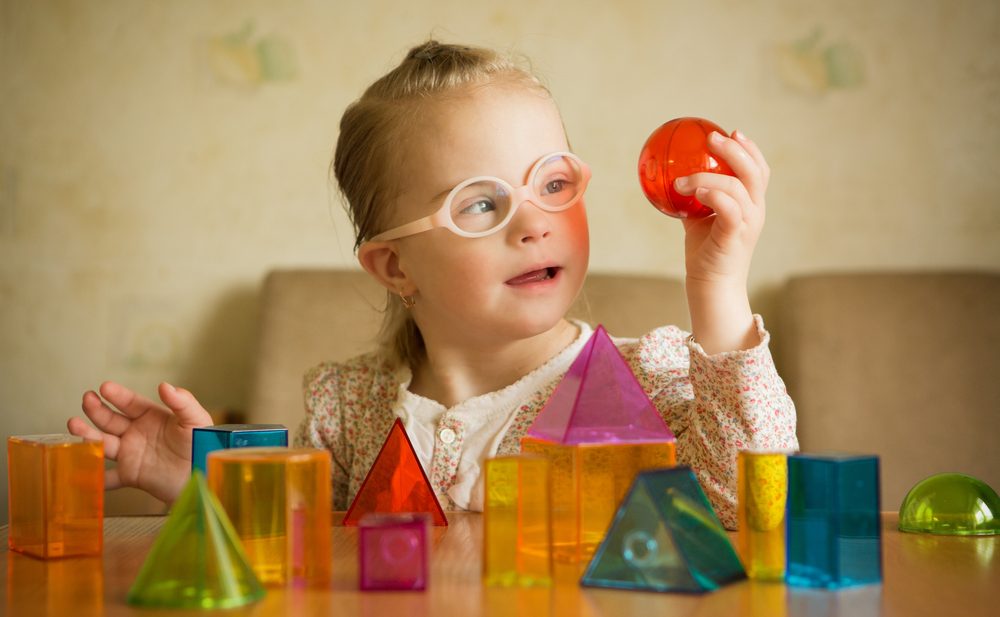- December 14, 2023
- by Shalini Murmu
- Behavioral Health
New research has discovered an unexpected link that demonstrated how 18% of children who have been diagnosed with Autism also display traits of Down Syndrome. This finding not only highlights the interconnection between different neurological developmental disorders but also leads to reconsidering and adjusting the approach and support provided to people who deal with these overlapping conditions.
Down Syndrome, also known as Trisomy 21, is a genetic disorder caused by the presence of an extra copy of chromosome 21. Those with Down Syndrome typically exhibit distinct facial features, and developmental delays, and may face health challenges such as heart defects. However, they also possess unique strengths, talents, and a capacity for enriching the communities they inhabit.
Signs Of Down Syndrome
- Flat facial profile
- Small head and ears
- Upward slanting eyes
- Slower developmental milestones (e.g., crawling, walking, talking)
- Cognitive delays
- Decreased muscle strength and control
- Increased susceptibility to certain health problems (e.g., heart defects, respiratory issues)
- Single crease across the palm (Simian crease)
- Delayed speech and language development
- Mild to moderate intellectual disabilities
- Social challenges and slower social development
On the other hand, Autism Spectrum Disorder (ASD) is a complex neurodevelopmental condition characterized by challenges in social interaction, communication, and repetitive behaviors. The spectrum covers a wide range of abilities and challenges, making each individual’s experience unique. From sensory sensitivities to exceptional talents, Autism defies a one-size-fits-all description.
Signs Of Autism
- Intense focus on specific topics or objects
- Resistance to changes in interests or routines
- Difficulty with social interactions
- Limited eye contact
- Delayed speech and language development
- Difficulty with nonverbal communication (e.g., gestures, facial expressions)
While these conditions may seem distinct at first glance, researchers have uncovered a fascinating overlap. It appears that there are shared mechanisms and genetic links that contribute to the manifestation of both Down Syndrome and Autism in some children. Understanding these commonalities may open doors to targeted interventions and therapies that could benefit kids navigating this dual diagnosis.
Types Of Behavioral Health Challenges
- Oppositional Defiant Disorder (ODD)
Oppositional defiant disorder is characterized by a pattern of angry/irritable mood, argumentative/defiant behavior, and vindictiveness. While it can occur independently, children with Down Syndrome or Autism may also exhibit ODD. The combination can intensify behavioral challenges, as ODD often involves resistance to authority figures and a persistent pattern of negativity and hostility.
- Conduct Disorder (CD)
Conduct disorder is a more severe condition marked by persistent patterns of behavior that violate societal norms and the rights of others. These behaviors can range from aggression and cruelty to deceitfulness and destruction of property. Like ODD, the presence of CD can exacerbate challenges in those with Down Syndrome or Autism, potentially leading to more significant behavioral issues.
Impact On Behavioral Health
- Increased Complexity: The coexistence of Down syndrome, autism, oppositional defiant disorder, and conduct disorder creates a complex and challenging behavioral pattern. Professionals provide effective interventions and coping mechanisms for these complex conditions.
- Social And Academic Implications: Behavioral issues associated with oppositional defiant disorder and conduct disorder can impact social interactions and academic performance. Challenges in following rules and respecting authority figures may lead to difficulties in school and community settings.
- Strain On Family Dynamics: Managing the behavioral health of a child with these co-occurring conditions can place strain on family dynamics. It’s common for parents and caregivers to feel overwhelmed, stressed, and uncertain about how to provide the best support.
Steps For Parents To Take
- Early Intervention: Early identification and intervention are key. Working with mental healthcare professionals, therapists, and educators to create a tailored plan can help address behavioral challenges before they escalate.
- Individualized Support Plans: Recognize that each child is unique, and treatment plans should be tailored to their specific needs. Collaborate with professionals to develop customized support plans that address both the neurodevelopmental and behavioral aspects.
- Consistent Structure And Routine: Children with Down syndrome and autism often benefit from structure and routine. Consistency can be calming and help reduce anxiety, which may, in turn, mitigate challenging behaviors.
- Behavioral Therapy: Behavioral therapy, including Applied Behavior Analysis (ABA), can be effective in addressing challenging behaviors. ABA focuses on reinforcing positive behaviors while reducing negative ones through systematic and individualized interventions.
- Parental Support And Education: Parents and caregivers should seek support and education to better understand and manage their child’s behaviors. Connecting with support groups, seeking guidance from experts, and staying informed about available resources can empower parents in this journey.
- Cooperate With Professionals: Maintain open communication with healthcare providers, therapists, and educators. Collaborative efforts ensure a holistic approach to addressing both the neurodevelopmental and behavioral aspects of the child’s well-being.
- Emphasize Positive Reinforcement: Encourage and reinforce positive behaviors. Positive reinforcement strategies can be powerful tools for shaping behavior and promoting a happy atmosphere.
- Self-Care: Managing the challenges of raising a child with complex needs requires resilience, and taking time for self-care can contribute to a more supportive and nurturing family environment.
You can make a significant difference in promoting positive behavioral health outcomes for your children going through these co-occurring conditions by simply reaching out to North America Behavioral Health Services and we’ll guide you to the best possible mental and behavioral health centers near you.
Recognizing the early signs that your child may be revealing is like tuning into the whispers of their heart. Listen to them closely and seek assistance at the earliest moment possible. Your child’s well-being is not just a priority but a shared heartbeat that resonates deeply with us. Every step you take toward their health is a journey we embark on together.













